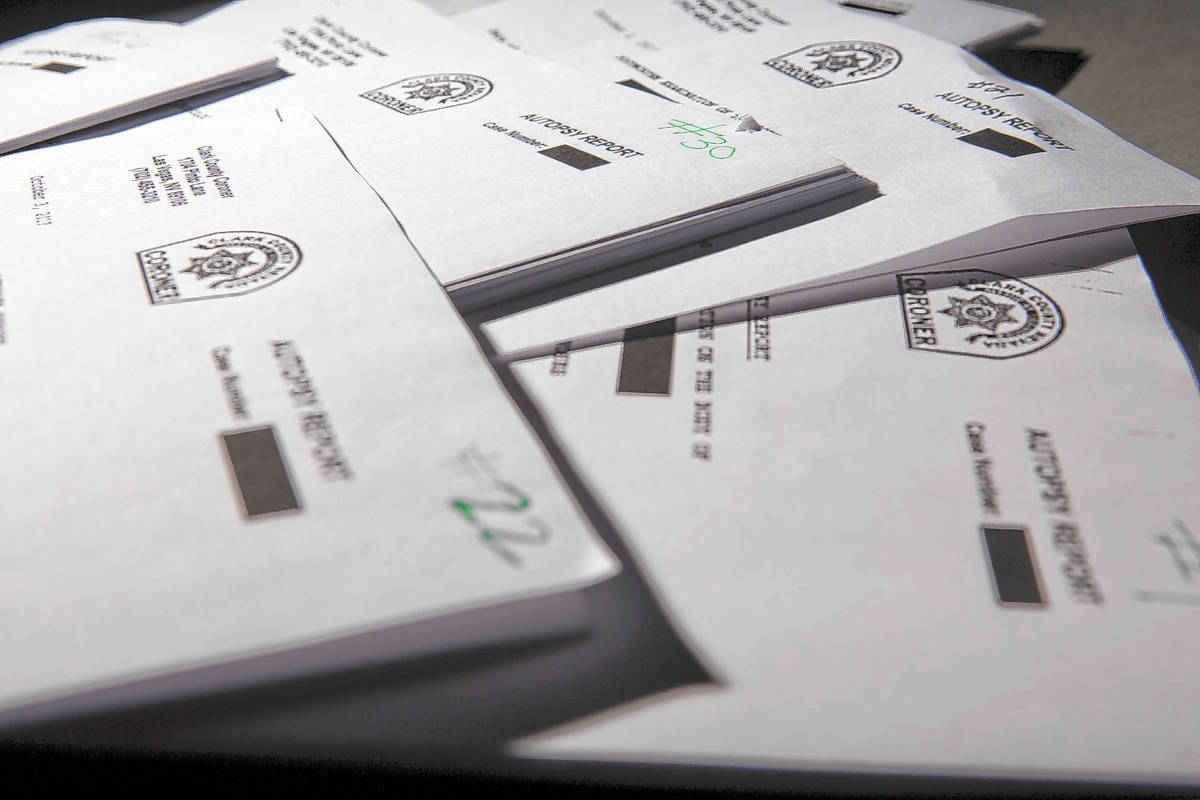EDITORIAL: Transparency essential during coronavirus pandemic
Nevada officials have struggled during the coronavirus crisis to provide accurate and timely information about the illness, making it more difficult to monitor the state’s progress in slowing the spread of the respiratory ailment. Gov. Steve Sisolak has compounded the problem by holding vague, limited news briefings that consistently frustrate residents craving specifics about the state’s path forward.
The governor acknowledged these shortcomings on Thursday. “I’ll do better,” he said.
Fair enough. But that should entail more than higher visibility and increased accessibility. Gov. Sisolak must also make clear the importance of public entities operating in a transparent and open fashion. In too many instances, government agencies have hidden behind the pandemic in order to stonewall document requests.
■ State officials last month said they were unable to comply with a request about Nevada health care workers who may have tested positive for the coronavirus. Meanwhile, state officials also said it could take more than two months to provide records pertaining to stockpiles of personal protective equipment and documents related to hospital capacity.
■ The Metropolitan Police Department, a serial offender when it comes to ignoring the state’s public records law, has refused to provide records on its plan for maintaining order during emergency situations.
■ UNLV officials cited privacy concerns in failing to produce communications regarding the school’s coronavirus response.
■ The governor’s office has said it will take up to 10 weeks to provide certain information — including documents that should be readily available about Gov. Sisolak’s calendar — that might help explain the justification for the state’s response to the virus outbreak.
■ The Nevada Department of Public Safety recently said it couldn’t comply with a Review-Journal request for records involving casino emergency response plans, citing the governor’s closure of nonessential state offices during the pandemic. The request was originally filed in December, three months before the state took any action regarding the coronavirus.
Some states have actually neutered public records laws in recent weeks, citing an influx of demands related to the coronavirus shutdowns. NPR reported last week that New Jersey, Washington, Indiana, Hawaii and Rhode Island “have all rolled back or suspended public record laws.” The California League of Cities has asked Gov. Gavin Newsom to do the same in the Golden State, according to the San Diego Union-Tribune.
This is precisely the wrong approach.
These trying times cry out for additional transparency, not less. People need as much information as possible to evaluate how their leaders have reacted to the virus, and agencies that resist accountability only risk fostering additional uncertainty and unrest. Misinformation and conspiracy theories, after all, flourish in the dark.
“The public needs to know what their governments are doing in response to the pandemic,” Adam Marshall, staff attorney for the Reporters Committee for Freedom of the Press, told USA Today, “and public records laws are in many cases the only legal right that the public has to information from the executive branch, whether it be it local, state or federal.”
No doubt government agencies are stressed and delays may be inevitable in some cases. That’s no license, however, to simply flout laws intended to promote democracy and good government, particularly as states impose unprecedented restrictions on their citizens.
To his credit, Gov. Sisolak said last week that he would look into complaints that his office has delayed responses to certain record requests. In addition, agencies such as Nevada OSHA and the attorney general’s office have been responsive during the crisis to this newspaper’s quest to keep the public informed.
But as the governor vows to improve his administration’s communication effort during this pandemic, now is also the time for him to send a clear message to state and local agencies about the importance of the public’s right to access government records.


















